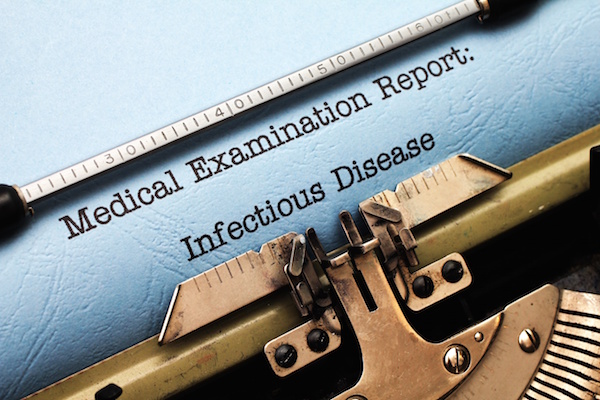
MONDAY, June 18 (HealthDay News) — Oregon has seen a sharp rise in the number of parents who are delaying infant vaccinations, a trend that experts warn raises the risk of outbreaks of serious, even deadly, diseases.
Some 9.5 percent of Portland-area parents consistently did not follow the recommended vaccine schedule for their infants between birth and 9 months in 2009, up from 2.5 percent in 2006, a new study finds. Parents were considered consistent “shot limiters” if they never let their kids get more than one or two shots at a time.
While many people who limit shots or follow “alternative” vaccine schedules plan to eventually get all the shots, many don’t follow through, according to the study.
By 9 months, infants whose parents were “shot limiters” had an average 6.4 injections compared to 10.4 injections for kids whose parents adhere to the schedule, the study found. Followed to 19 months, the children of “shot limiters” still hadn’t caught up, and were less likely to be vaccinated against chicken pox, measles-mumps-rubella and hepatitis A.
“There is no benefit to spacing out shots or getting fewer shots per visit,” said study author Steve Robison, an epidemiologist with the Oregon Sentinel Immunization Surveillance region, a U.S. Centers for Disease Control and Prevention vaccine monitoring program. “It is a very carefully constructed schedule intended to provide the most benefit when these kids need it.”
It’s unknown if the Portland area is reflective of the nation, but experts said there is likely a lot of variation across the country, depending on regional attitudes, socioeconomic status and other factors.
The study, published online June 18, will appear in the July print issue of Pediatrics.
The CDC’s Advisory Committee on Immunization Practices publishes and periodically updates a recommended schedule of childhood vaccines.
Over the years, the number of vaccines recommended has risen, accompanied by a movement among parents to space out vaccines or to refuse them altogether. One study found 22 percent of parents have delayed or refused vaccines, according to the article. Some worry about vaccine safety, and others believe the schedule calls for too many shots too soon, Robison said.
The study found that few parents were following any particular schedule.
“Many parents have an emotional reaction to the sight of their baby being poked three or four times, so it’s an easy sell to tell them, ‘You can still immunize your kids, but just back off on the number of pokes,'” Robison said.
This practice might sound harmless, but it’s not, said Dr. Rodney Willoughby, a member of the American Academy of Pediatrics committee on infectious diseases and a professor of pediatrics at the Medical College of Wisconsin in Milwaukee.
“All those extra appointments to get immunizations is costly either to families or insurance,” he said. “Second, the vaccine schedule is far from random. It’s based on years of basic research, animal studies and clinical trials that look at what age kids will have the optimal immune response and therefore get the greatest level of protection and at what age they’re most at risk from serious complications or death if they contracted one of the diseases.”
“The process of deciding when a vaccine happens and when it should be given takes a lot of deliberation, up to a decade,” Willoughby added.
For example, at birth babies have antibodies from the mothers circulating in their system that offer early protection and would interfere with certain vaccines taking hold. So the immunizations are timed for delivery right after those antibodies have dissipated, Robison said.
The vaccine schedule also takes into account research that determined that grouping together certain shots is safe and effective, he added.
Portland has a small element that has historically questioned traditional medical practice, Robison said.
Elsewhere, outbreaks of pertussis (whooping cough) and measles have occurred in several states and countries over the last few years.
Parents who delay vaccines are leaving their children vulnerable to these and other serious diseases for longer than necessary without any proven benefit to delaying, experts said.
“In my career, I have seen large numbers of children that come in with a preventable disease,” Willoughby said. “They have severe illness. They’re in the ICU. Some suffer brain damage, all of which was entirely vaccine-preventable if they hadn’t decided to delay the vaccine.”
More information
Check out the recommended vaccine schedule for kids and adults at the U.S. Centers for Disease Control and Prevention.

